This entry relates to the book: Predictably Irrational - The Hidden Forces That Shape Our Decisions - By Dan Ariely.
This is a perspective in behavioral economics and a look at ways that irrationality can be used in building digital products.
For the understanding of irrationality, read my previous entry Irrationality — We are basically still Neanderthal
People don’t know what they want unless they see it in some context
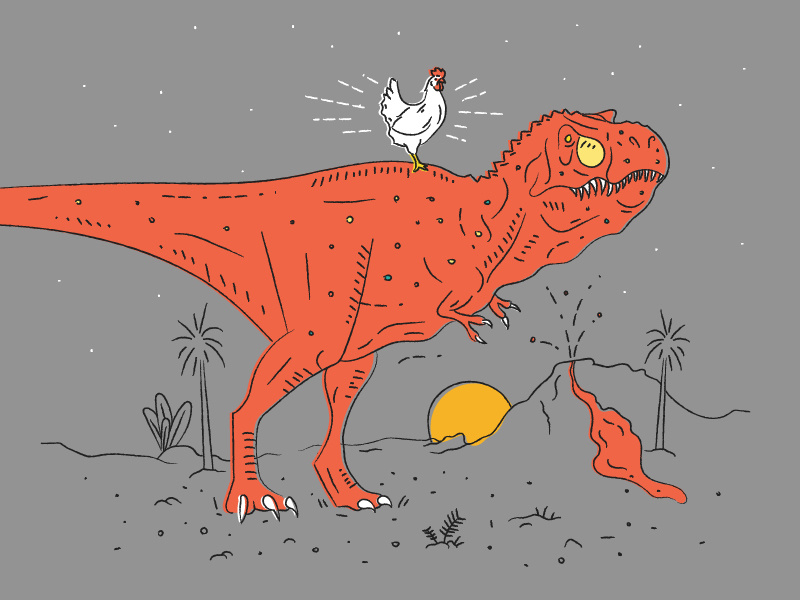 Image by Lemonly
Image by Lemonly
I remember a quote from Einstein and also a paradox (I seem to crazy about him)
Everything is relative.— Einstein
This is the crux of the matter. Like a lost person on the road, I want signs along the way so that every step I take I know where I am going.
We always see things around us in relation to other things. This is not only true of tangible things like a bicycle, a piece of cake, an hourly wage at the grocery store, or even our lover, it is also true of experiences such as vacations, and courses .. to invisible things such as feelings, attitudes and opinions.
We always compare work to work, vacation to vacation, lover to lover, wine to wine. This correlation reminds me of a quote from the movie Crocodile Dundee when a thug points a knife at the main character of the film, Paul Hogan. “You call that a knife?” Hogan asked incredulously and pulled a dagger from the back of his shoe. He said and smiled wickedly: “Then this is also a knife.”
People compare their salaries with colleagues, friends from college, and with family members. However, analyses have shown that the link between salary and happiness is not as strong as we thought.1 In countries where the “happiest” people are not among the highest per capita income countries. However, we are always striving for higher salaries, largely due to jealousy.
Here’s a lesson for us: the more we have, the more we want. And the only cure is to break the comparison.
What can we learn to apply to building products?
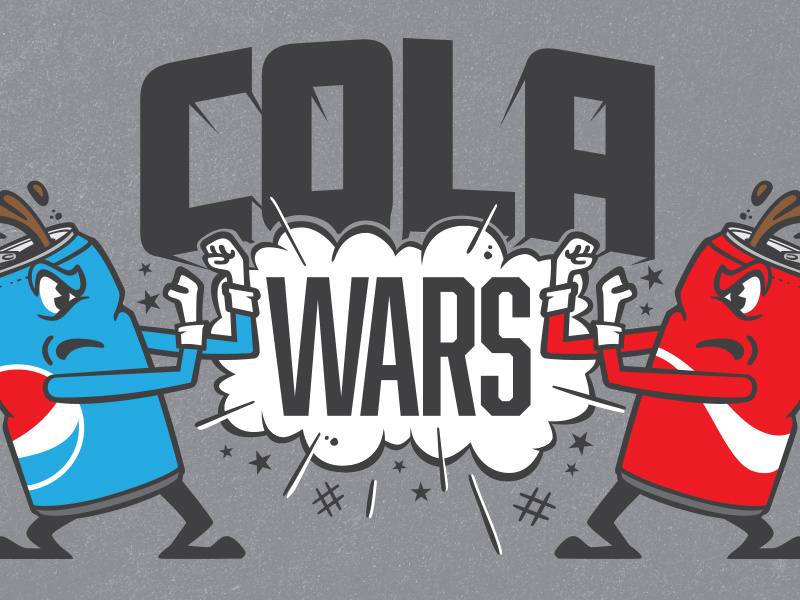 Image by Erik DeWaal
Image by Erik DeWaal
Have you ever come across the billboards of stores next to each other on the street, and they “attack” each other openly, this makes customers compare in their heads and choose one of those stores instead choose another one. Naturally, both stores are now profitable.
Marketers often use the same trick to get us to buy more than one product they’re trying to promote by placing it on a shelf — or in an online store — next to a product that seems much worse in comparison.
Similarly, they often create product purchase options with an option where the price is quite high to make an anchor, to push the user into the 2nd highest choice, and have a more affordable price tag. Alternatively, push the price of the option to appear close together, then the option to buy a product with full features seems to be a bargain.
Restaurants too, use this tactic, by deliberately over-pricing the most expensive item on the menu, to make you feel like you’re making a bargain by ordering the next item on the list.
We only forget about the “anchor” price when the feeling of experience is so different and unique. Before Starbucks no one thought it would be necessary to pay a lot of money for a cup of coffee, Starbucks broke the comparison by providing quality coffee and food, cleanliness of the store, friendliness and efficiency of the staff as well as the ambiance of the store.
And you, let’s talk about flirting, the human brain not only compares but always chooses the shortest way, so the best way to flirt with a girl in a bar is to go with a friend and as long as your friend is a little less attractive than you, it can be in communication or looks.
Human is social animal
Humans have always been animals living in groups from the beginning, they always have to look around to know their position in the herd and know what to do next, that instinct still exists to the present, and people deal with the majority.
Going back to the Starbucks example, let’s say you’re walking past a restaurant and see two people waiting in line to get in. You think in your head: “This must be a good store. People are standing in line.” So you line up behind these people. Another person passed. He saw three people standing in a line and thought, “This must be a great store”, and joined the line. Others do the same.
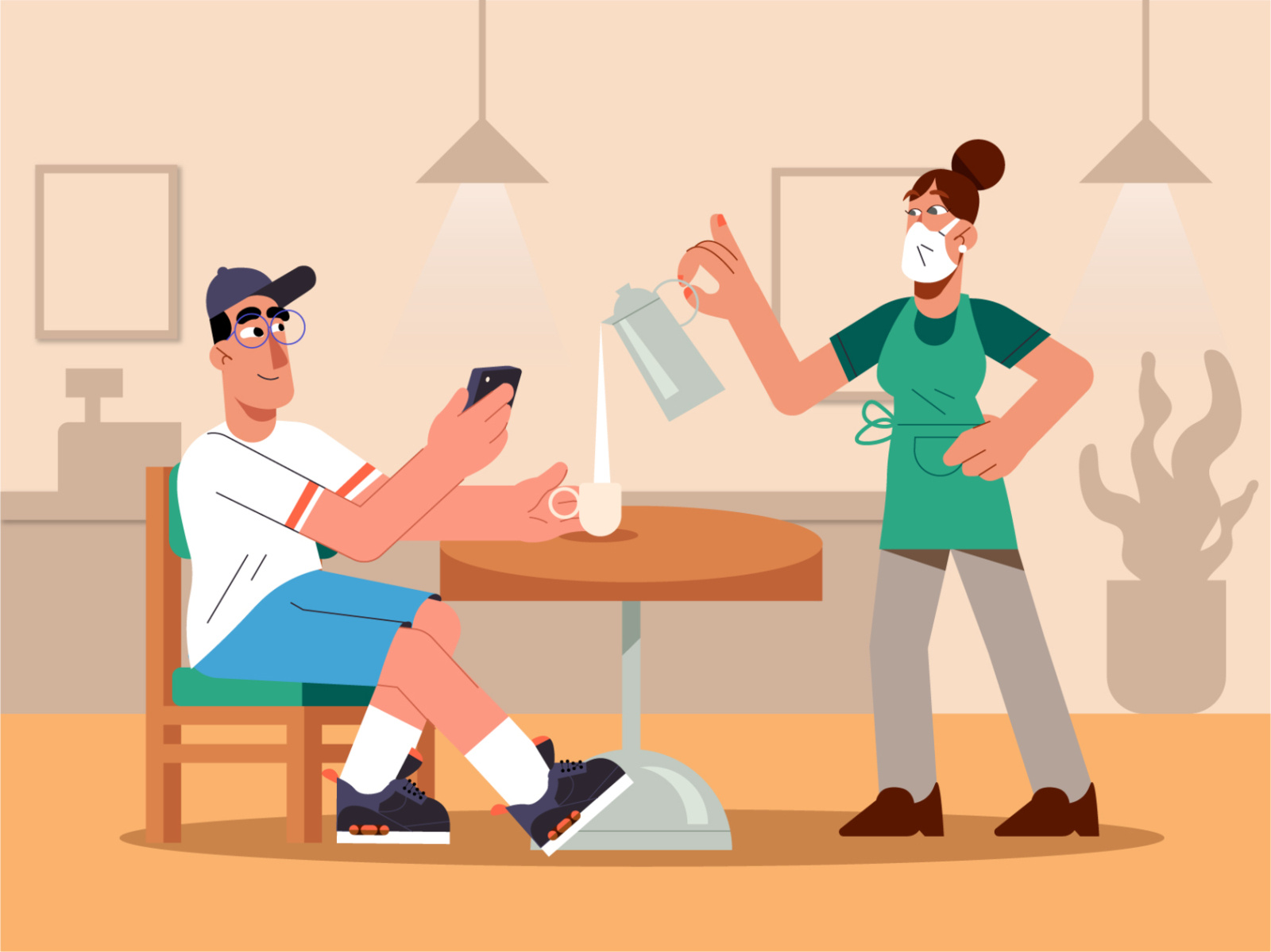 Image byAndres Gonzalez
Image byAndres Gonzalez
The better part is that the next week, you go to Starbucks again. You say to yourself, “I’ve been to Starbucks before and it’s so comfortable and I love the coffee there too, this is always a great choice.” So you walk in and order another small cup of coffee. In doing so, you become second in line, right behind yourself.
We should also give special attention to our first decision. In fact, the power of the first decision can have a lasting effect on future decisions. Therefore, we should be cautious when making this first decision.
Socrates once said that life without experimentation is not worth living. It’s time to re-examine the markers and anchors in your life. Even if they were once perfectly reasonable, are they still reasonable? From reflection, we can make new decisions and embrace the many new opportunities that are opening up.
…
Do you remember the famous chapter in The Adventures of Tom Sawyer, in which Tom turns the painting job of Aunt Polly’s fence into an exercise in controlling his friends? Tom painted the fence with amusement, pretending he enjoyed the job. “Do you guys call this work?” Tom told his friends “Does a boy have a chance to paint the fence every day?” Implanted with this new “information” Tom’s friends find joy in painting fences. Soon, they not only pay for the privilege but also feel the joy of working.
Tom has discovered a great law of human action, that is, to make a person crave something, just make it difficult.— Mark Twain wrote well about Tom Sawyer.
Number 0
The story of zero is a long. The Babylonians invented the concept of zero; The ancient Greeks debated it in very good terms: “How can something be nothing?” Today zero is applied by product developers in pricing: Free.
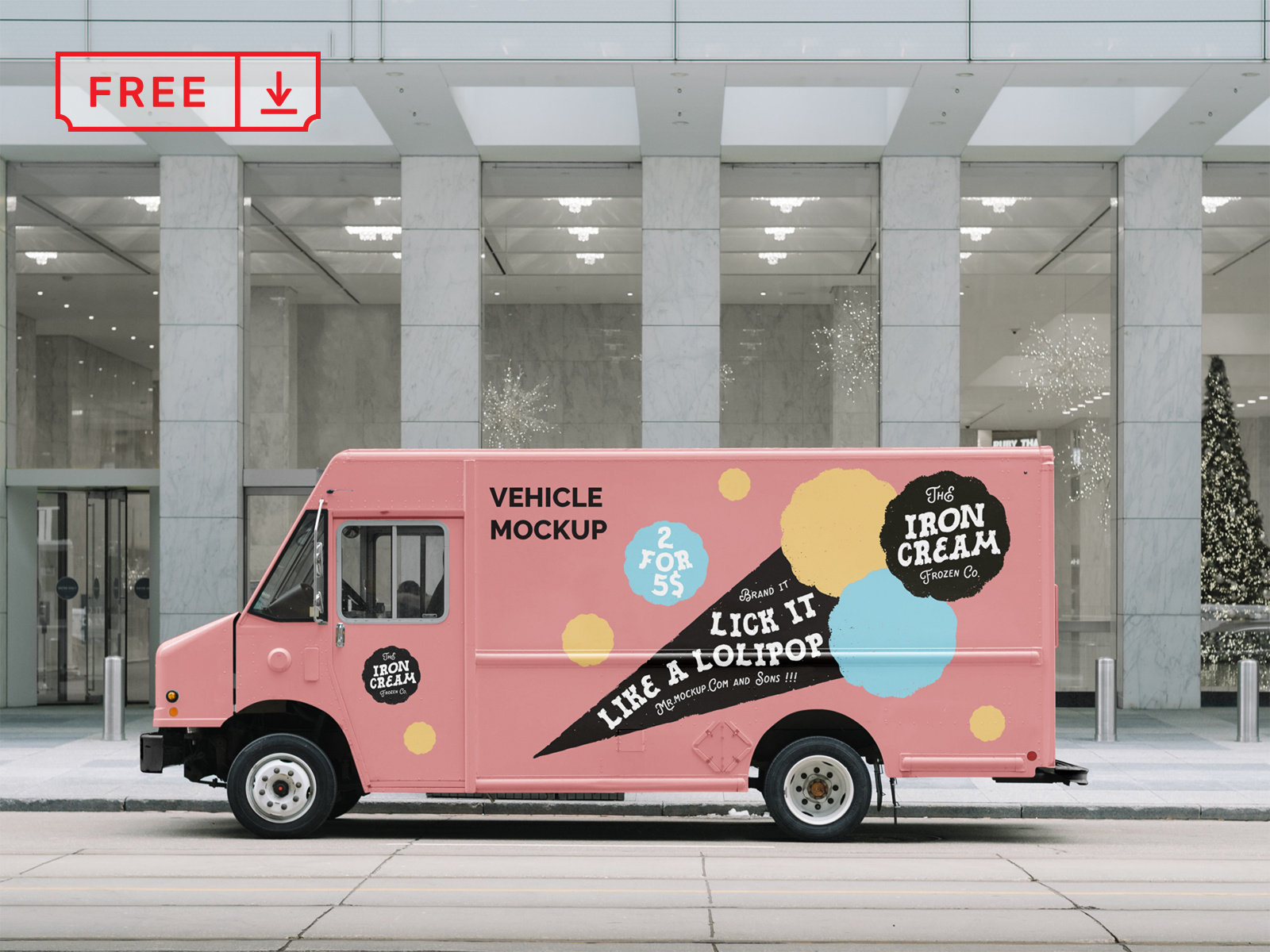 Image by Mr.Mockup™
Image by Mr.Mockup™
When we get a free item, we often feel very excited. But in fact, the price of zero is also a hot emotion - a source of irrational stimulation.
According to standard economic theory (simple cost-benefit analysis), price reductions should not lead to any change in customer behavior. Problems arise when the free item puts you in a mental struggle between the free item and another item - a struggle in which the presence of the free item leads us to a less informed decision.
Most items have their pros and cons, but when an item is free, we forget about its cons. Free products give us the feeling that the item is worth a lot more than it is. The Amazon.com website has adopted this strategy by starting a campaign with free book shipping on certain quantity orders. For example, a customer who orders a book for $16.95 may have to pay an additional $3.95 in shipping charges. But if that customer buys another book and the two books total $31.90, they get free shipping.
The number 0 also affects food purchases. Manufacturers have written all the information on the product box: calorie content, fat content, fiber… Can the attractive price of zero to us be applied to the market? zero calories, zero fat, zero fat? If such general principles were applied, Pepsi would have sold more sales with the label “0 Calories”.
Similarly, we can apply the free form to social policies. Do you want people to ride electric cars? Don’t just lower your register and maintenance fees - get rid of them. Likewise, if health is all your concern, then focus on early diagnosis to prevent the development of serious diseases in time. Do you want people to have regular health check-ups to detect diseases early? So don’t just cut costs. Check them out for free.
Social norms
The number 0 above in some cases will direct people to social norms. That’s when you ask people to join in cleaning up the environment, for example, most will join enthusiastically when you pay them nothing more than paying them $10/day. When money is mentioned, people will see that the offer is silly compared to their market salary. When money is not mentioned, they use social norms and are willing to volunteer their time. Why don’t they accept $10 and consider themselves volunteers to receive $10? Because once market norms have entered our consideration, social norms automatically lose their place.
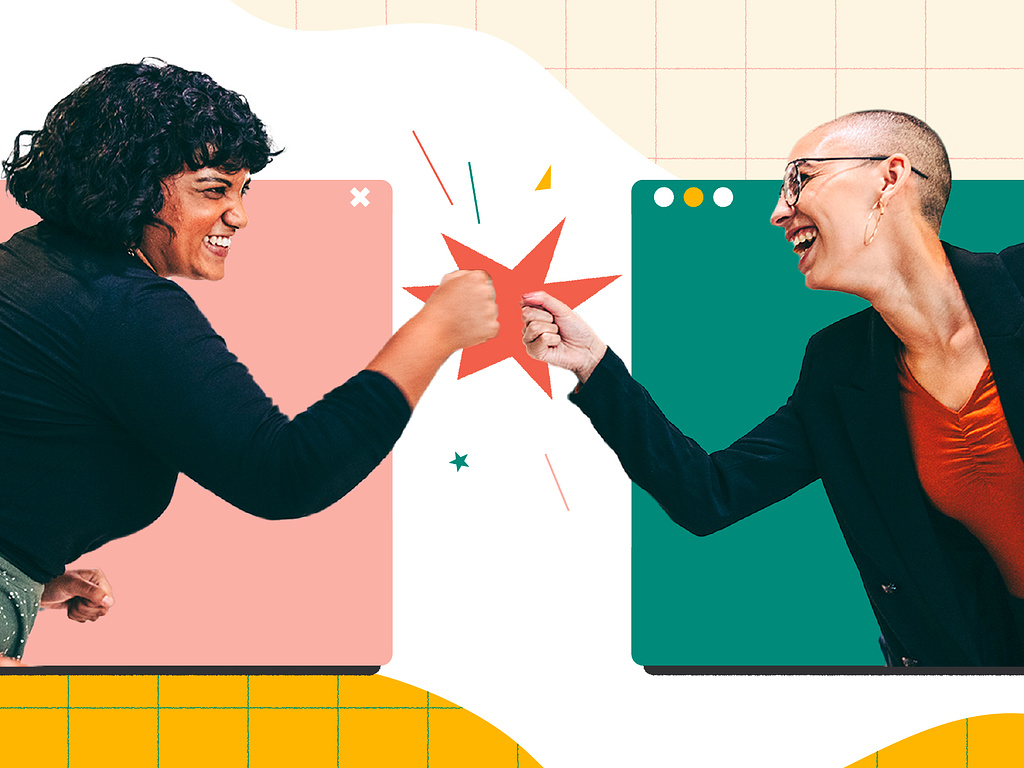 Image by Clint Hess
Image by Clint Hess
So we live in two worlds: one, characterized by social exchanges, and the other, characterized by market exchanges. We apply different criteria for these two types of relationships. If we introduce market norms into social exchanges, they disrupt social norms and hurt relationships. Once you have made a mistake, it is very difficult to restore social relationships.
Experiment
Some time ago, a study of a nursery in Israel was conducted to determine whether imposing a penalty on parents who came late to pick up their children was an effective preventive measure.
They concluded that the penalty did not work well, but also had a negative effect. Why? Before the penalty was introduced, teachers and parents had a social contract, with social norms about being late. Therefore, if they are late to pick up, parents will feel very guilty about it, forcing them to be more urgent in coming to pick up their children. (In Israel, guilt is an effective way to get compliance).
But once the penalty was imposed, the nursery inadvertently replaced social norms with market norms. Now, because parents have already paid for their tardiness, they can decide for themselves whether to come late, and they often choose to come late. This is not what this nursery wants.
But the real story has only just begun. The most interesting thing happened a few weeks later when the nursery removed the penalty. Are parents going back to social norms? Will their guilt return? No! They continued to be late to pick up their children, and in fact, the number of late pick-ups by parents increased (eventually, both social norms and penalties were abolished).
This experiment shows a fact: when the social norm crashes the market norm, it goes away for a long time. In other words, social relationships are not easy to re-establish.
How have companies applied?
Whoever started the movement to treat customers by social norms is still a great idea. If the customer and the company are family, the company will receive a lot of benefits.
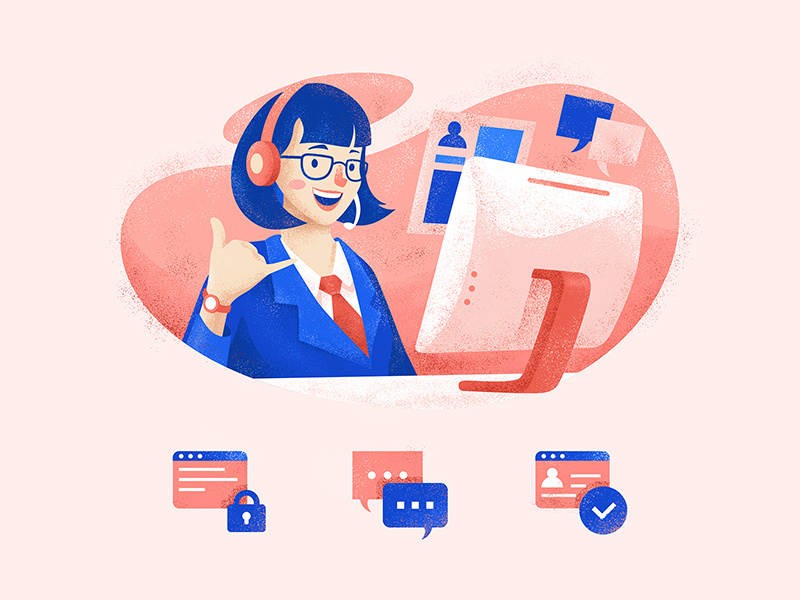 Image byFauzy Lukman
Image byFauzy Lukman
If you’re starting a business, my advice is to remember you can’t build customer relationships both ways. You can’t treat your customers like family at one time, and then treat them coldly at another time - or treat them as a nuisance or a competitor. If you want a social relationship, then remember that you must maintain it in any situation. Stick to a simple concept of value: declare what you give and what you expect in return.
Some other companies apply to their employees by switching from hourly to monthly pay as a way to eliminate administrative work time. They make employees work more passionately, more diligently, and more flexibly. In a market where employees’ loyalty to their bosses is often shaky, social norms are the best way to keep employees loyal and engaged.
In treating their employees, companies must understand what a long-term commitment means. If employees promise to work harder to keep up the schedule (even canceling family work for that goal), if they are asked to step on board immediately after receiving notice to attend a meeting, in response, they must also receive help when they are sick, or the chance to keep their jobs when the market threatens to take them away.
People always find a way to procrastinate things
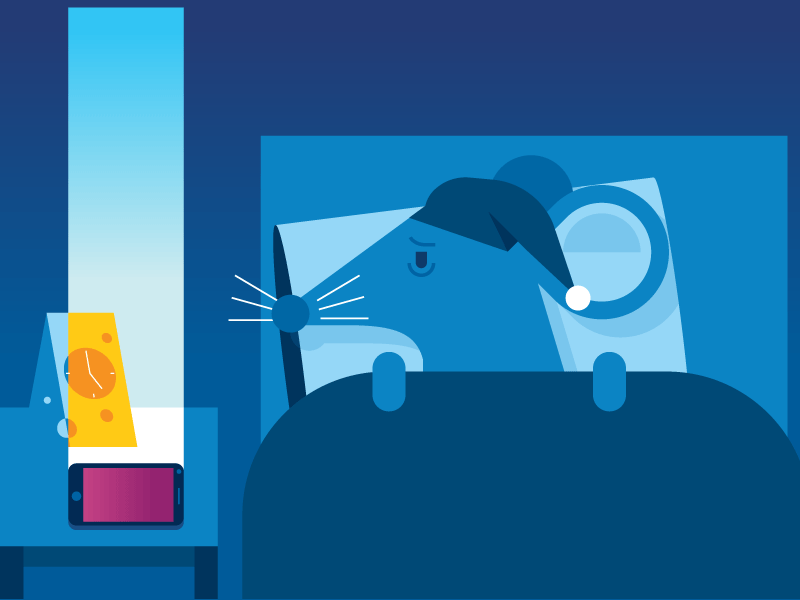 Image by Sara Wong
Image by Sara Wong
Procrastination in English comes from the Latin: pro means for, and cras means tomorrow.
Recalling the previous article Irrationality — We are basically still Neanderthal, the human brain focuses only on the present, the distant future results are considered unclear and uncertain providing no value.
As a result, we promised ourselves to save for the future but always overspend at the moment, we want a summer body for the upcoming summer vacation but still eat unhealthy every day.
In terms of expense control, I am building a personal financial management tool including daily expense control, debt management, financial goal setting, and investment management… Hope to launch soon shortly (and I am not defeated by procrastination).
Virtual ownership
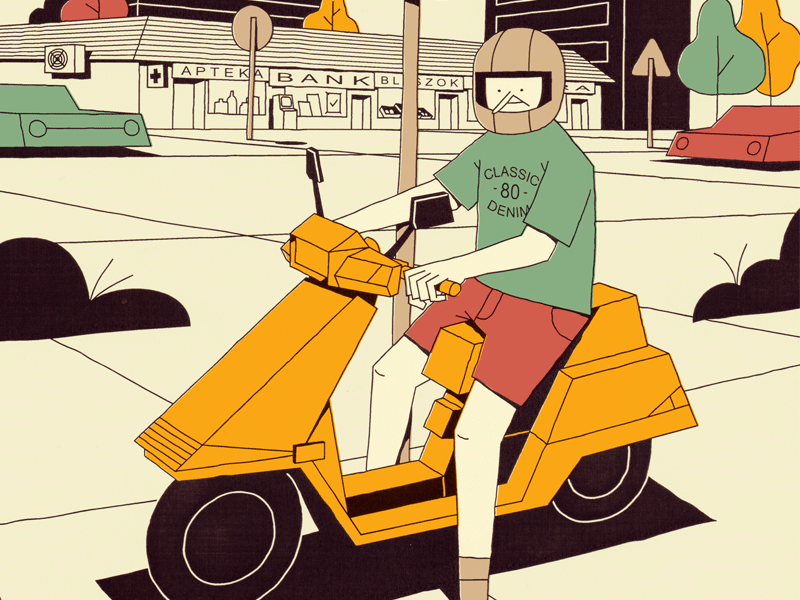 Image by Krzysztof Nowak
Image by Krzysztof Nowak
Based on research by Jack Knetsch, Dick Thaler, and Daniel Kahneman on “The Endowment Effect”2 we predict that when we own something - whether it’s a car or a violin, a cat or a basketball ticket - we value it more than anyone else.
Most of our lives are spent in ownership, so wouldn’t it be good if we made the best decisions for it? Unfortunately, this rarely turns out to be true. Most of the time it’s like we’re groping in the dark. Why? Because of the three irrational habits of our human nature:
The first habit, we often cherish what we already have.
Suppose you decide to sell your Volkswagen. You start to recall the trips you’ve taken. A warm aura filled with memories appears in your mind. This is true not only of Volkswagen cars but of everything else as well. It can happen very quickly.
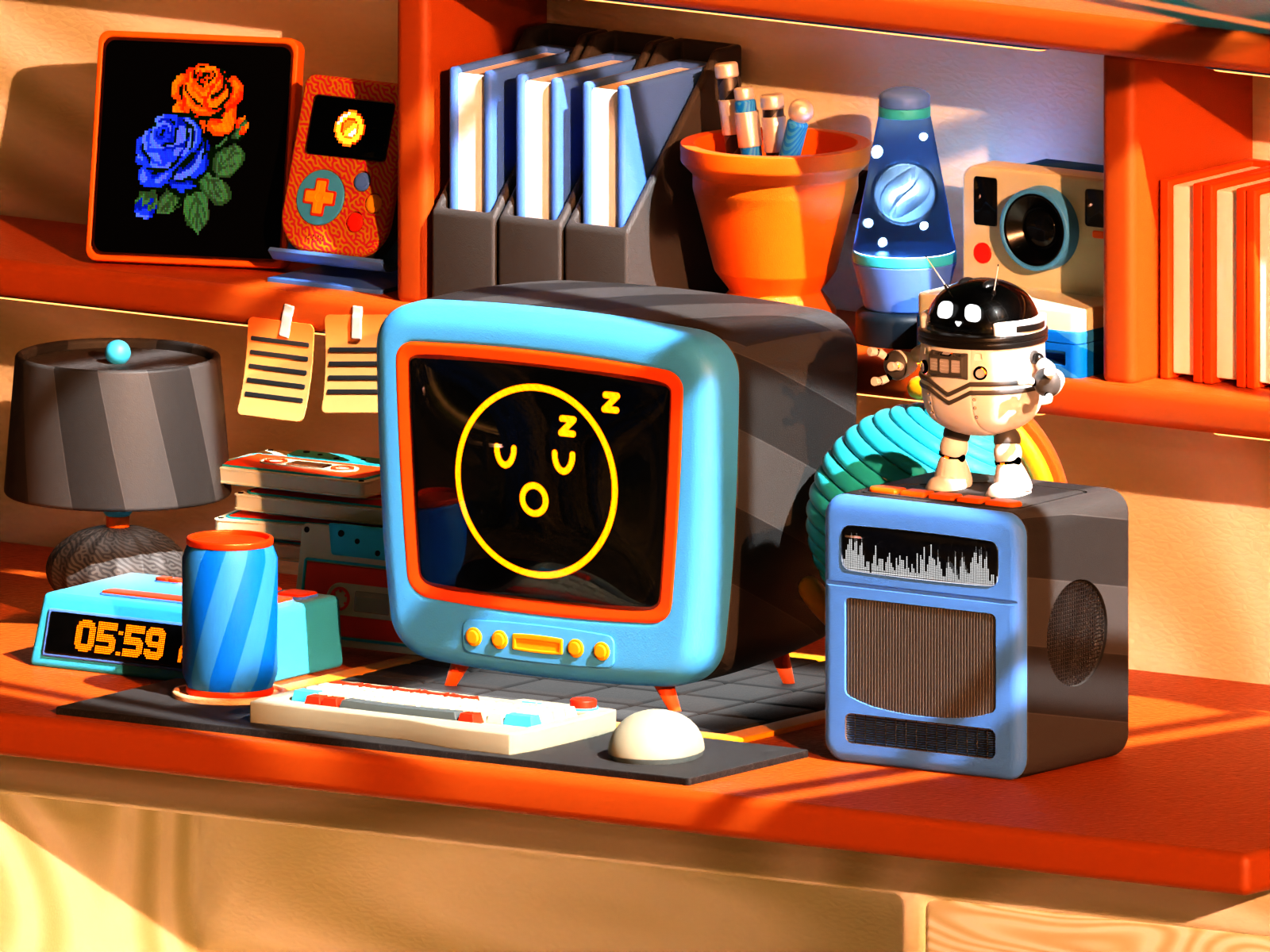 Image byRizal Priambo
Image byRizal Priambo
Second habit, we focus on what we might lose rather than what we might gain.
Therefore, when pricing our beloved Volkswagen, we think about what we will lose (the right to use the car) rather than what we will get (money to buy something else). Likewise, ticket holders are more focused on missing out on the chance to watch the game than on imagining the pleasure of receiving money or what can be bought with that money.
The emotion we have for loss is very strong and is an emotion that sometimes causes us to make ill-advised decisions. Have you ever wondered why we often refuse to sell some of the things we love, and if someone offers to buy them, we immediately charge them a hefty price tag? As soon as we start thinking about giving up our valuable ownership, we are already grieving the loss.
The third habit, is we assume that other people will see the transaction from our perspective.
We expect Volkswagen buyers to share their feelings and memories. Or we expect homebuyers to appreciate how sunlight streams in through kitchen windows. Unfortunately, Volkswagen buyers tend to notice the smoke coming out of the muffler when you shift from first to second; Homebuyers pay more attention to the black mold in the corner of the kitchen.
Ownership also has “characteristics”:
Firstly, the more effort you put into something, the more ownership you feel towards it.
Think about the last time you built something. Having to figure out which part is in which position and which screw fits in which hole increases your sense of ownership. Professor Mike Norton (Harvard University) coined the term for this phenomenon: the “Ikea effect”.
Second, we can feel ownership even before we own something.
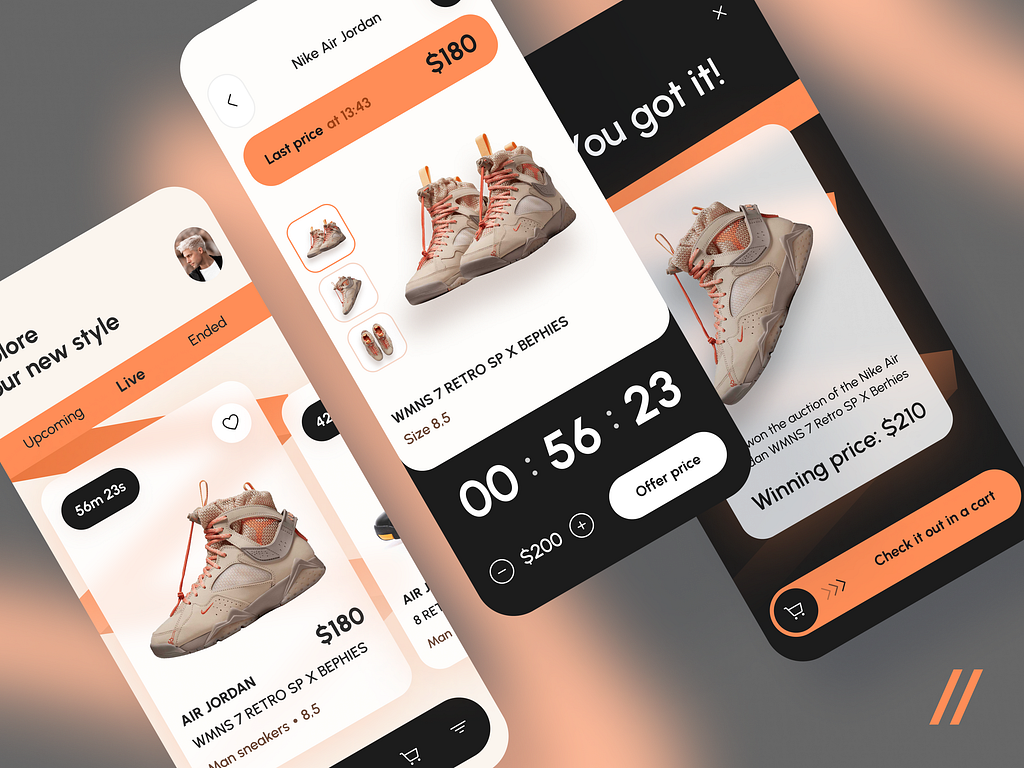 Image by Kristina Spiridonova
Image by Kristina Spiridonova
Think back to the last time you entered an online auction. Let’s say you put up your first bid on a Monday morning for a wristwatch and by that time you were the highest bidder. The next night it was still the same. You begin to imagine it when you hold it on your wrist and the compliments you will receive. An hour before the auction ends, you go online and someone has jumped to the top of the auction and is going to take your watch! So you raise your price higher than you originally expected.
Virtual ownership is a key driver of the advertising industry. Apple is the best example of successfully applying this thinking to product advertising. Their features or products often emphasize happiness in use or unique ways of using the feature of the product, and we imagine ourselves doing the same, it feels awesome and irresistible to be pushed up.
The “trap” has been set up waiting for us to volunteer to enter. We become owners even before we own anything.
Keep things simple
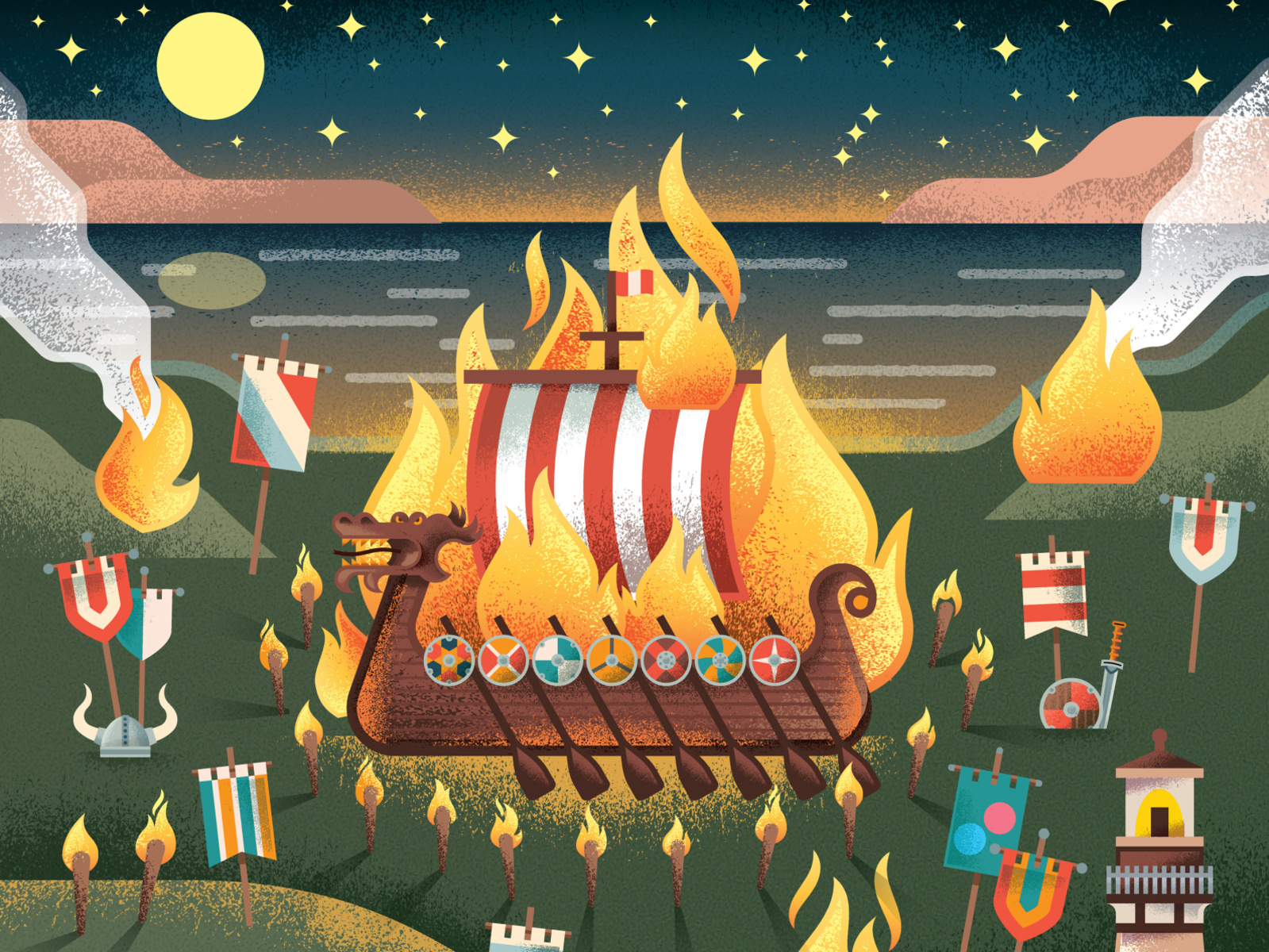 Image by Eric Nyffeler
Image by Eric Nyffeler
I will start with a story. In 210 BC, the Chu general Xiang Yu3 sent troops across the Yangtze River to fight the Qin army. When night fell, Xiang Yu’s army camped on the riverbank. When they woke up, they panicked to find their boat was on fire. They aggressively hunted down the culprit who burned the boat, but later, they discovered that it was Xiang Yu who burned the boat and he also ordered the entire pot to be broken.
Xiang Yu explained to the troopers that when there were no pots and pans, and no boats, they would have no choice but to fight to the end to win or die. This action made Xiang Yu undesirable to the troops, but it created a great spiritual effect on his troopers: they raised spears, bows, and arrows, fiercely attacked the enemy, won five battles consecutively, and destroyed the Qin army.
Today, we go to great lengths to keep all the opportunities open to us. We buy computers that integrate many functions just in case we need those superior functions at some point; buy insurance for high-definition television in case the screen breaks; involve the children in activities such as gymnastics, playing the piano, learning French, gardening or taekwondo in the hope that activity will become their passion; Buy a luxury SUV not because we want to ride on the highways but just in case we want to clean the undercarriage.
We may not always be aware of this, but in every case, we often give up something to get the above choice. We buy a computer with more functionality than we need, a stereo rig with a hefty insurance premium. And for kids, instead of allowing them to get good at one activity, we waste time trying to get them involved in a variety of activities. When we get so caught up in running after so many things, we forget to spend enough time on the things that matter. It’s a fool’s game.
The problem arises in another aspect when we don’t realize there are some things like doors that are disappearing and need our immediate attention. For example, we are so absorbed in working overtime that we don’t realize our children’s childhoods are slipping away.
On the product side, it’s time to narrow down the options of the user, I mean focus on the most important parts of the product, do it well, and the user will naturally stay with the product much more.
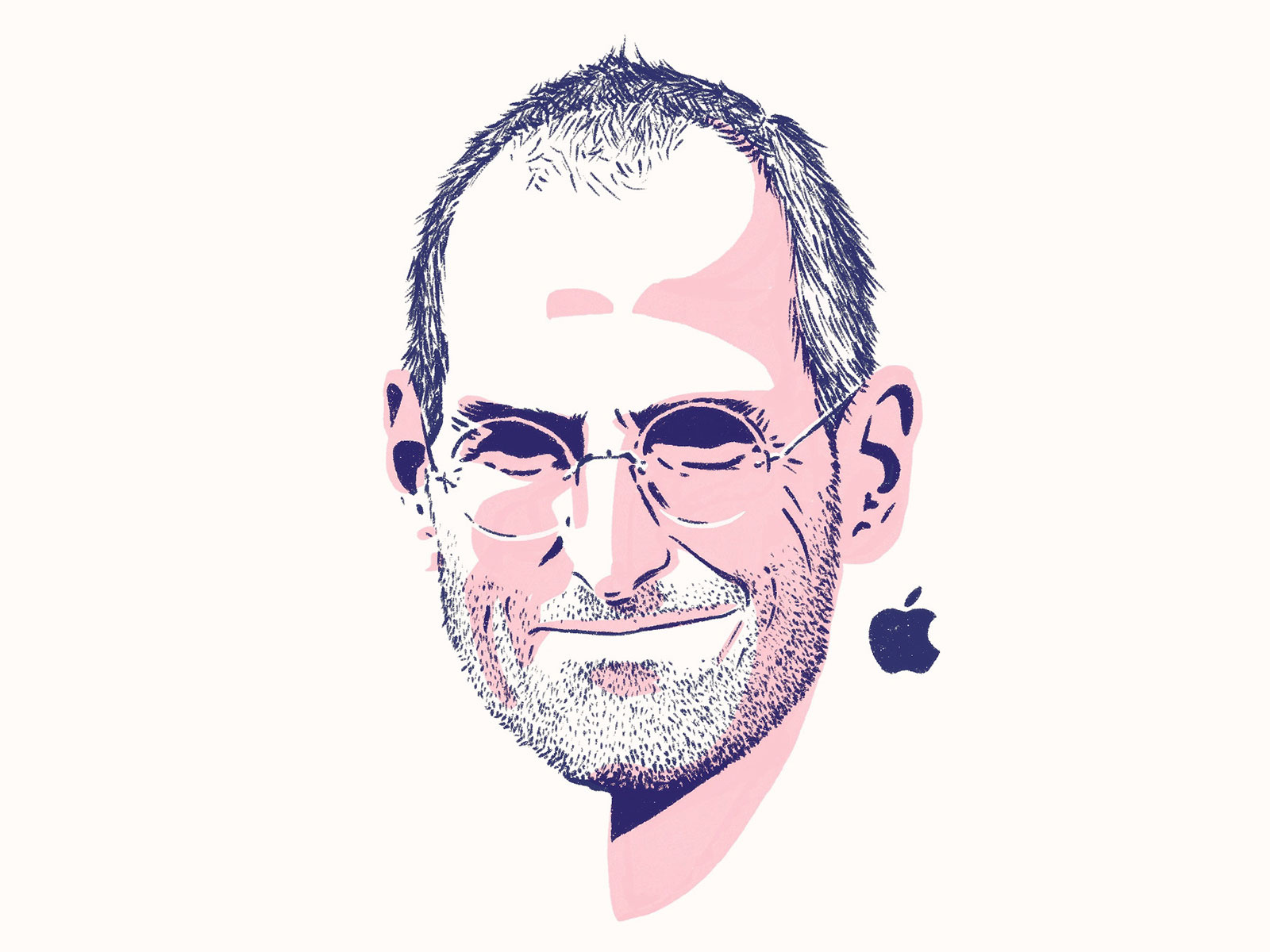 Image by Dan Draper
Image by Dan Draper
It reminds me of Steve Jobs’ unforgettable philosophy:
Simple can be harder than complex: You have to work hard to get your thinking clean to make it simple. But it’s worth it in the end because once you get there, you can move mountains.— Steve Jobs
Footnotes
-
How your salary affects happiness (cnbc.com) https://www.cnbc.com/2023/03/28/how-your-salary-affects-happiness.html ↩
-
Anomalies: The Endowment Effect, Loss Aversion, and Status Quo Bias https://www.aeaweb.org/articles?id=10.1257/jep.5.1.193 ↩
-
Xiang Yu https://en.wikipedia.org/wiki/Xiang_Yu ↩
